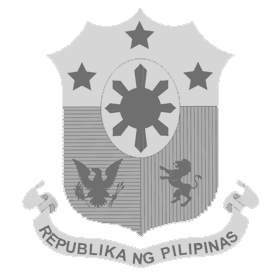
Four housewives enjoying better lives through DSWD help
By: Social Marketing
Written by Charmaine P. Tadlas, DSWD El Salvador City – Five years ago, Girlie Claudel, Medalla Ladoroz, Catche Quilab, and Devina Gruta of this city shared the same difficulty in life: providing food on their family tables, sending their children to school, and maintaining a good home for their families. But today, these five housewives can now say that their lives have become better – thanks to Listahanan, the household targeting system run by the Department of Social Welfare and Development. Listahanan is a management database system that generates a list of who and where the poor households are in the Philippines. These names, which underwent through household assessement, validation, and proxy meant tests in the DSWD system, now become potential beneficiaries of various social protection programs, not only those implemented by the Department, but as well as those run by local government units, other national government agencies, civil society and non-government organizations. In Northern Mindanao, 338,749 households were identified by the Listahanan as poor. They have been determined through a number of variables, ranging from their access to basic facilities, economic and financial stability, education, health, and shelter, among others. Because the Listahanan data can be utilized by various social protection providers, with the condition that they forge a Memorandum of Agreement with the DSWD, poor households under the Listahanan data may now have greater opportunities to benefitting to social services. Girlie, Medalla, Catche, and Devina are four women whose households were identified in the Listahanan Data. Because of this, they have become beneficiaries of Pantawid Pamilyang Pilipino Program which helps them send their children to school, maintain their children’s health and wellness, and in strengthening family ties. Moreover, they are also enjoying livelihood benefits from the Department’s Sustainable Livelihood Program: Medalla, Catche, and Devina are members of the Bolisong SKA – an association that produces “Duhat” Wine, while Girlie, on the other hand, is now managing her own sari-sari store, both of which are funded by the Department. According to them, they are also enjoying social services and protection programs implemented by their city government. They said that they are also enjoying free medical services and hospitalization, free medicines, undergo free capability workshops and short-term courses facilitated by their city local government partners. “Tungod sa tabang sa nasudnong panggobyerno ug sa lokal nga pangagamhanan, nabatunan namo ang mga oportunidad nga mapalambo namo ang among kahimtang isip pamilya. Tungod sa ilang tabang, dako na ang akong pagtuo nga kaya nako ang kabag-uhan (Because of the help extended to us by the national and local government, we were able to gain opportunities to improve the conditions of our families. Because of their help, my faith that I can make a change in our lives has strengthened), Girlie says. “Kaya gyud diay namo ang pagbabago.”
